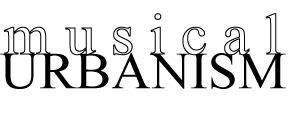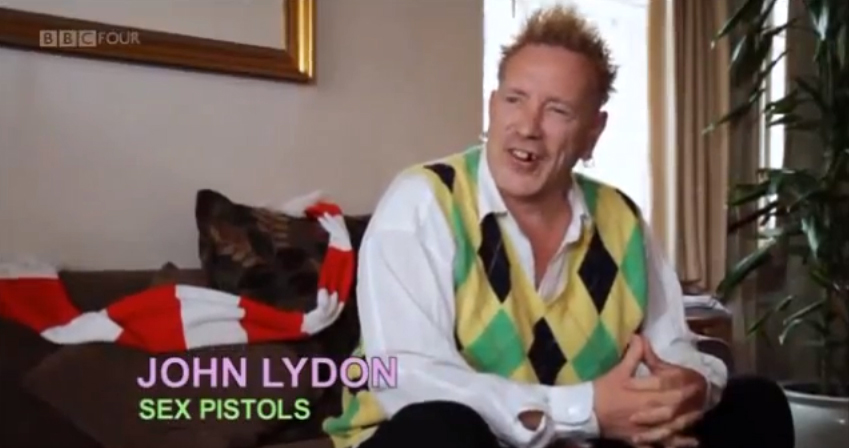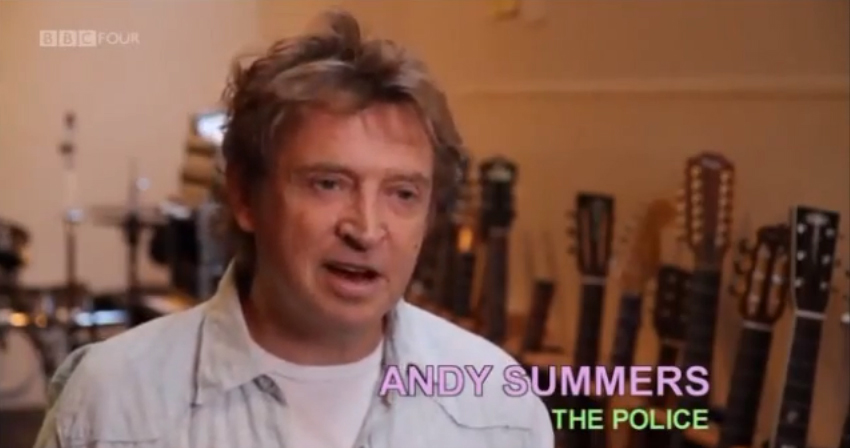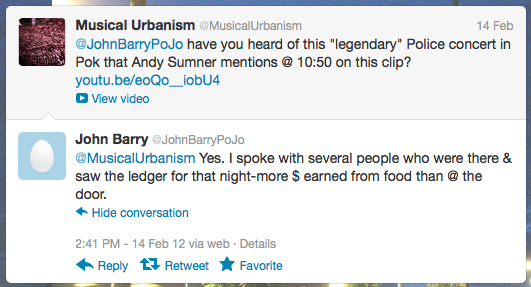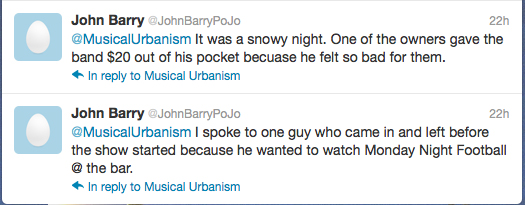Thanks to the Slicing Up Eyeballs blog, I’ve discovered a new BBC Four music documentary, “How the Brits Rocked America: Go West,” about the three generations of British musicians, from the Beatles to Duran Duran, who scaled the walls of American pop culture. Some of them made their fortunes, many more failed, and a few just wanted to see what it was all about. Their collected observations and experiences make for endless analysis and speculation, and I highly recommend you find the three-part series on Youtube.
So far I’ve only viewed the final episode, “The Kids in America,” about the British punk and new wave era. This generation of musicians is especially interesting because of all the various British invasions, their music was probably the most British—the least invested in reinventing and repackaging American forms, as was the case for British beat bands and blues rockers. Perhaps because it was also the most ideological (if not principled) of British music forms, punk and new wave gave this generation of British musicians a huge sense of superiority that made for quite a shock. The documentary especially plays up this last aspect with references to U.S. “mainstream radio’s obsession with long-haired rock and its indifference to new music” and declarations that the “new generation of bands didn’t want to be arena rockstars. Instead, they were malcontents presenting pearls before very few swine.”
JOHN LYDON: We went to America because it was… the fatal attraction! It was the big boil on the backside of the world, that one. Absolute—that’s a nuthouse. Gots to get there, gots to see what that place is about.
This episode especially addresses the obstacles posed by the United States’ cultural geography, at least before MTV (and, not mentioned here, corporate radio consulting firms) consoldated a single national channel for music broadcast. If British musicians really wanted to make an impact, they had reach out to the still-regional radio markets and fanbases. This meant leaving the agreeable oasis of NYC, typically the first stop for a transatlantic tour, and making their way into the country’s vast commercial and cultural hinterlands—”the unglamourous underbelly of America,” the narrator helpfully explains. The stories of these travels are especially memorable, as this recollection from Simple Minds’ Jim Kerr illustrates.
JIM KERR: It was like walking into a clichéd dream of New York. We played that night [at Hurrah’s in 1979], and in the audience Iggy Pop was heckling us, and Lou Reed was being moody off in the corner. It was exciting beyond belief, and it was also very intimidating. Then came the reality. You drive an hour and a half to Buffalo, and there’s two men and a dog there. And it’s like, I thought we were stars last night; I thought Lou Reed and Iggy Pop were here, and Debby Harry was there. Why would they need us? Why would they need some movement from the U.K.? But of course, like anywhere, there were teenagers who were hungry for something that was different and exotic.
An hour and a half drive to Buffalo?! Clearly those days are a blur to Jim Kerr now; on the best of drives, Buffalo is a good six or seven hours away from NYC. There’s no discussion here about who those hungry teenagers were, what their cities and towns were like, and how these kids responded to the sounds of British new wave. But the secret to cracking the American market is revealed via the crucial figures of the Police, the first British band of the punk/new wave era to top the U.S. charts and fill stadiums across the country. MTV was certainly an asset in their campaign, but the basis of their success was set earlier, as their manager (and brother to the drummer) explains.
MILES COPELAND: The secret of the Police was that it was affordable. With only three guys and a roadie, we could literally say, You know what? We don’t need the radio. We don’t need that big support system. We don’t need the tour support of the big record company and all that stuff. We don’t need the big touring bus. We can get in a station wagon, you know, and we can go play a 300-seat club. And you know what, with two hotel rooms, because we’d have one roadie, and the guys would double up, and we’d get a rollaway bed, we could actually go out in the market. So we could get back to the people. And in the end, it’s the fans that can make it happen or not.
Predictably, I about fell off my seat when Andy Summers cited my city Poughkeepsie (which really is an hour and a half drive from NYC) as the beachhead in the Police’s campaign to win over America.
ANDY SUMMERS: We did play in Poughkeepsie on that tour, and it has sort of in time become legendary. We were at this place called the Last Chance Saloon, aptly named, and there were only four people there. And it was like, well, not really worth bothering. But we had the spirit at the time; we thought, well, you know, we’ve got paying customers—all four of them. We did the show, and everybody absolutely loved it, all four of them. They all came back in the dressing room!
Just for kicks, I asked John Barry, the music reporter at the Poughkeepsie Journal, if he knew about this show.
In sum, “How the Brits Rocked America” is highly entertaining documentary chock full of great interviews and detailed observations of British musicians’ encounter with American geography. But I confess that watching my favorite British musicians describe how backward and weird my country was, hearing no voices of their American fans, and learning the “secret” to conquering the U.S., I had an uncommon thought for an American: so this is what colonialism feels like on the receiving end.
